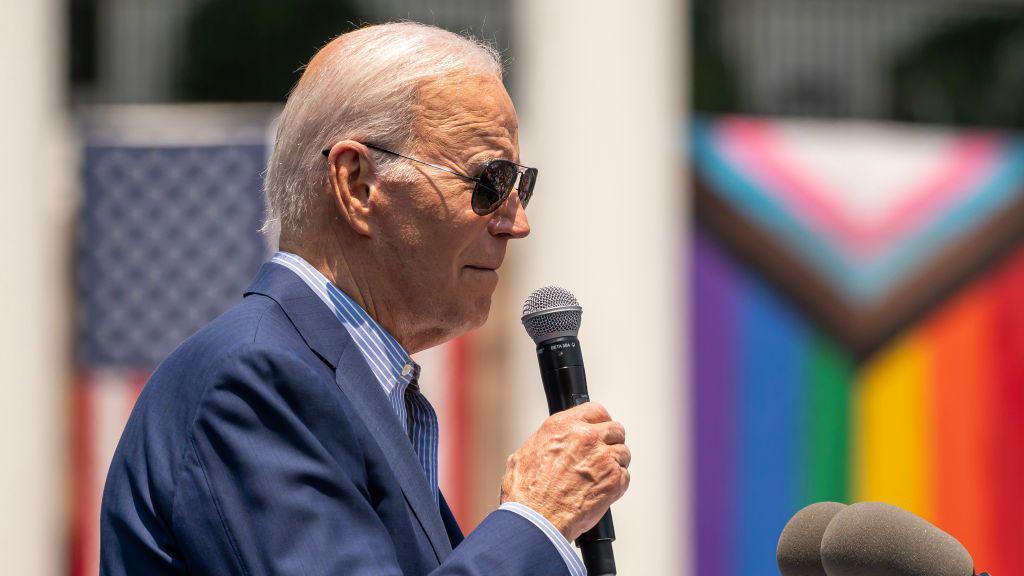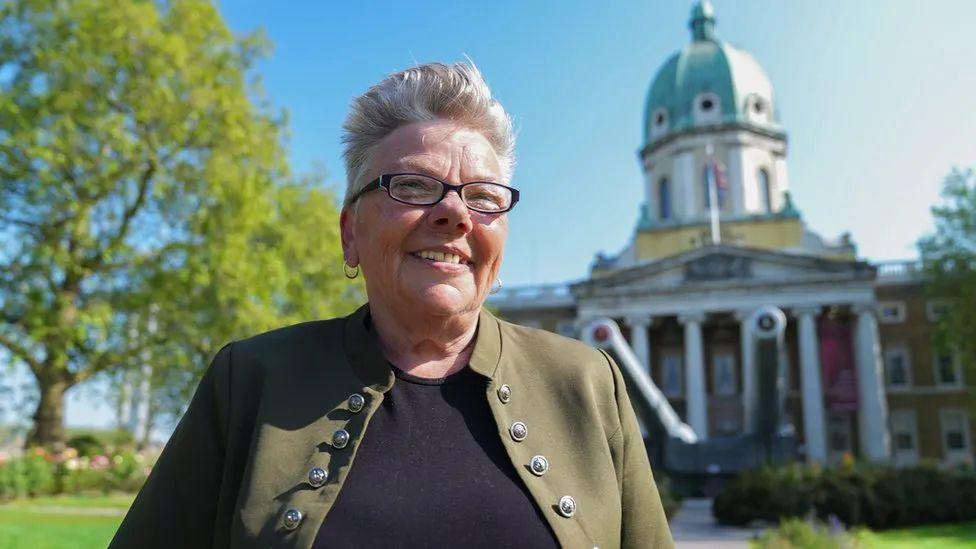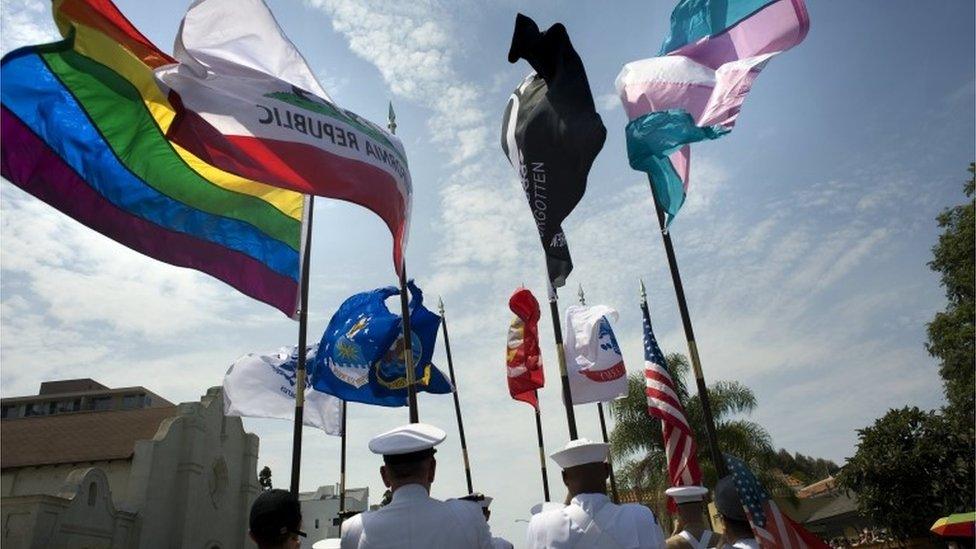Pardoned former officer says military gay sex conviction 'hangs over me'

- Published
Steve Marose, a former US Air Force officer who was discharged for being gay and who served prison time for consensual sodomy, said he had long hoped that one day he would be pardoned.
"I can pretend that 'Oh, I'm resilient,' you know, 'I got this,' but in the end, it's trauma," Mr Marose told the BBC.
He is one of thousands whose convictions were overturned on Wednesday, after US President Joe Biden announced that he would pardon those found guilty of crimes under a military law that banned gay sex for more than 60 years.
Mr Biden described the pardon as "righting an historic wrong".
"I'm just glad the day has come," said Mr Marose.
He and other veterans were convicted under a provision of the Uniform Code of Military Justice, which criminalised sodomy from 1951 to 2013.
The US Congress had repealed the portion of the code that outlawed consensual sodomy in 2013.
This military provision is separate from the "Don't Ask, Don't Tell" President Bill Clinton-era policy, which banned openly gay and lesbian Americans from serving in the military.
In a statement on Wednesday, President Biden said he was "using [his] clemency authority to pardon many former service members who were convicted simply for being themselves".
"We have a sacred obligation to all of our service members - including our brave LGBTQ+ service members: to properly prepare and equip them when they are sent into harm's way, and to care for them and their families when they return home," he said.
US media reports that some 2,000 people could be granted clemency under the president’s proclamation.
The proclamation will now allow those affected to apply for a certificate of pardon, after which the service member can get their discharge status changed.
This will make them eligible for veteran benefits that may have previously been denied, though it is unclear how long the process will take.
Mr Marose said his conviction in the late 1980s affected his life in many ways.
"It is a felony record," he said, adding that it once cost him a job at a police department despite scoring very highly in his interviews.
"They do background checks every time I've changed jobs, and I have to dig it all up again and show them this is what it was, this is what the charges were, this is the outcome," Mr Marose said. "It kind of just hangs over me in that regard."
A conviction also means having a hard time being accepted for rental applications and restrictions when it comes to foreign travel.
"I can't get into Canada because they don't care what your conviction is," Mr Marose said.
'Just glad the day has come' - Ex-airman on Biden gay sex pardon
This, he said, is in addition to having to pay the military back for his college fees and having his Air Force career be cut short.
Sodomy was illegal among US military members even with mutual consent until former President Barack Obama decriminalised same-sex relationships through the National Defense Authorization Act a decade ago.
Mr Obama also repealed the "Don't Ask, Don't Tell" policy in 2011, and allowed gay and lesbian service members to serve openly in the armed forces.
A CBS News report, external found an estimated 100,000 LGBT military members were kicked out of the US military between World War II and the repeal of "Don't Ask, Don't Tell".
Sarah Kate Ellis, the chief executive of the Gay & Lesbian Alliance Against Defamation, applauded the move in a social media post.
"It is an important signal not only to the thousands of brave LGBTQ Americans who deserved better for defending our country, but to all who understand that diversity, respect, and inclusion are American values," she wrote.
There are approximately 79,000 LGBT individuals serving in the US military as of 2022, according to a Center for American Progress analysis.
Related topics
- Published25 April 2024

- Published26 July 2017
